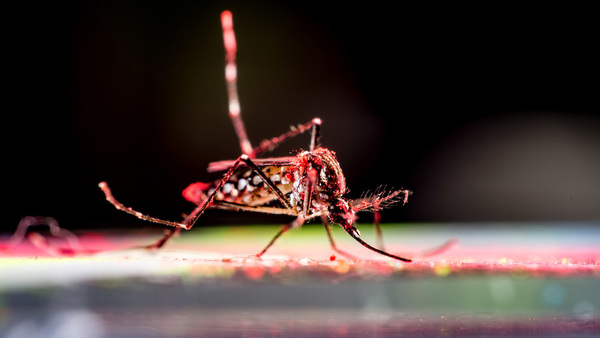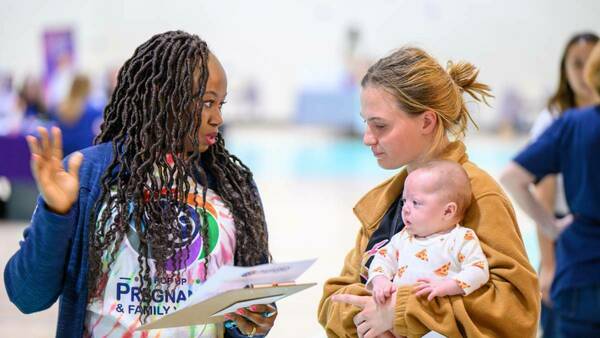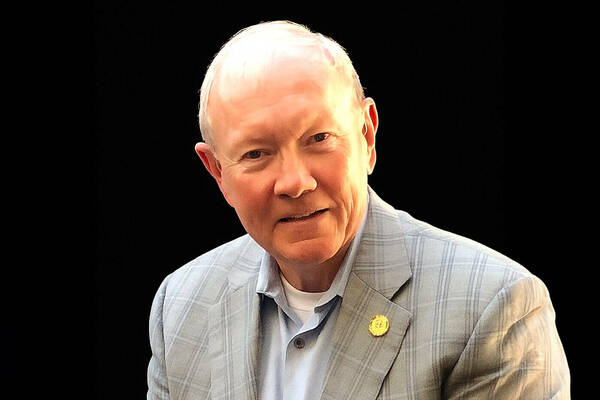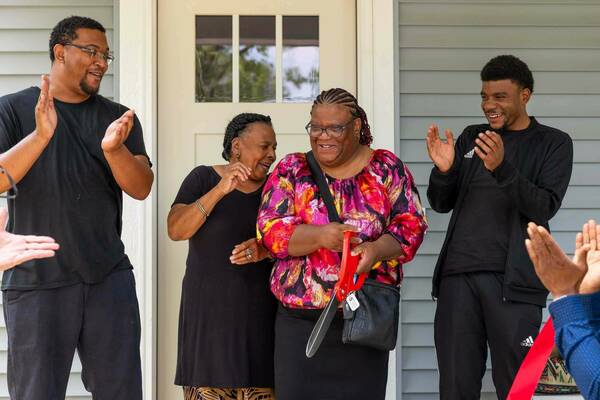Partial peace deals may facilitate comprehensive accords, offering roadmap for policymakers, practitioners

Over the past two decades, conflicts in more than 40 countries, including El Salvador, Northern Ireland, Senegal and The Philippines, have ended in comprehensive peace agreements. But these broader accords don’t happen all at once.
Partial peace agreements — deals signed along the way that address issues ranging from ceasefires to constitutional reforms and human rights — could provide a blueprint for peacebuilding policymakers and practitioners, new research from the University of Notre Dame suggests.
The study, published in the Journal of Peace Research, draws on a newly expanded dataset from the University’s Peace Accords Matrix — a trusted resource for global peace practitioners seeking actionable evidence. Researchers examined 51 provisions from 42 comprehensive peace agreements and 236 partial peace agreements.
“Thanks to this newly expanded dataset, we uncovered findings that can inform the work of negotiators in various global contexts,” said lead author Madhav Joshi, research professor and associate director of the Peace Accords Matrix, which is housed within the Kroc Institute for International Peace Studies, part of Notre Dame’s Keough School of Global Affairs. “These insights are possible because of the impactful research that takes place at the Peace Accords Matrix.”
Expanded data yields fresh insights
Partial peace agreements offer multiple strategic advantages, Joshi said. They can help negotiating parties consolidate incremental progress; serve as metrics for stakeholders and the international community; allow parties to test specific measures before fully committing to them; and signal a larger commitment to the peace process.
The new study provided a deeper look into how these agreements work, Joshi said. Researchers found the following:
- A greater number of partial agreements is associated with higher implementation of comprehensive agreements.
- Generally speaking, it is a better strategy to pursue more partial agreements, even if this lengthens negotiations.
- Longer negotiations that do not produce partial agreements are never better than short negotiations.

“These findings suggest that partial peace agreements play an important role in building trust and strengthening relationships between negotiators to help peace processes succeed,” Joshi said.
The study also helped identify additional avenues for future research, Joshi said, which might explore why parties in some processes (but not others) pursue further partial agreements. Further studies could explain why some partial agreements are implemented immediately while others are not, and why only some partial accords reaffirm previous agreements.
“Ultimately, this study is an example of our evidence-to-action approach,” Joshi said. “Our research can guide the work of policymakers and practitioners on the ground who work to end conflicts and save lives. Putting this evidence in their hands is critical to designing effective policies that will yield a tangible impact, helping societies escape the destructive cycles of violence and war.”
The study received funding from the Keough School’s Kroc Institute for International Peace Studies. Joshi co-authored the report with Matthew Hauenstein, assistant research professor at Notre Dame’s Lucy Family Institute for Data & Society and Jason Quinn, research associate professor and a principal researcher for the Peace Accords Matrix data project.
Originally published by at keough.nd.edu on June 10.
Contact: Tracy DeStazio, associate director of media relations, 574-631-9958 or tdestazi@nd.edu
Latest ND NewsWire
- Researchers deconstruct chikungunya outbreaks to improve prediction and vaccine developmentThe symptoms come on quickly — acute fever, followed by debilitating joint pain that can last for months. Though rarely fatal, the chikungunya virus, a mosquito-borne illness, can be particularly severe for high-risk individuals, including newborns and older adults. While the virus is common…
- Eck Institute investigator to strengthen postpartum care for Indiana mothersYenupini Joyce Adams, associate professor of the practice and maternal health lead for the Eck Institute for Global Health at the University of Notre Dame, is partnering with Beacon Health System to pilot a new, first-of-its-kind postpartum care model in the South Bend-Elkhart community.
- Gen. Martin Dempsey to speak at Notre Dame Forum event on ‘Hope, Global Stability and the Role of the United States’Gen. Martin Dempsey, the retired 18th chairman of the Joint Chiefs of Staff, will join University President Rev. Robert A. Dowd, C.S.C., for a fireside chat at 4 p.m. Friday (Oct. 10), as part of the 2025-26 Notre Dame Forum. The discussion, titled “Hope, Global Stability and the Role of the United States,” is part of the exploration of this year’s Notre Dame Forum theme, “Cultivating Hope.” It will take place in Rooms 215/216 of McKenna Hall and will also be livestreamed. The event is free and open to the public.
- University of Notre Dame joins the Global Coalition of Ukrainian StudiesThe University of Notre Dame has joined the Global Coalition of Ukrainian Studies after signing a memorandum of cooperation, formalized Sept. 24, at the Ukrainian Institute of America in New York City. Notre Dame joined four other American institutions that were also publicly welcomed to the coalition at this event: Arizona State University, Columbia University, Manor College and the Shevchenko Scientific Society.
- One year later, Inauguration Build a ‘dream come true’ for Habitat familiesOne year later, work on Inauguration Build 2024 is complete, offering shelter and so much more to five local families.
- Alumni Association and YoungND honor 2025 Domer DozenThe Notre Dame Alumni Association announced its 2025 Domer Dozen cohort, honoring 12 graduates ages 32 and younger for excellence in their contributions in learning, service, faith and work — the core pillars of the association’s mission.













